Congress is working on legislation to reverse the GOP's recent dismantling of sexual harassment protections

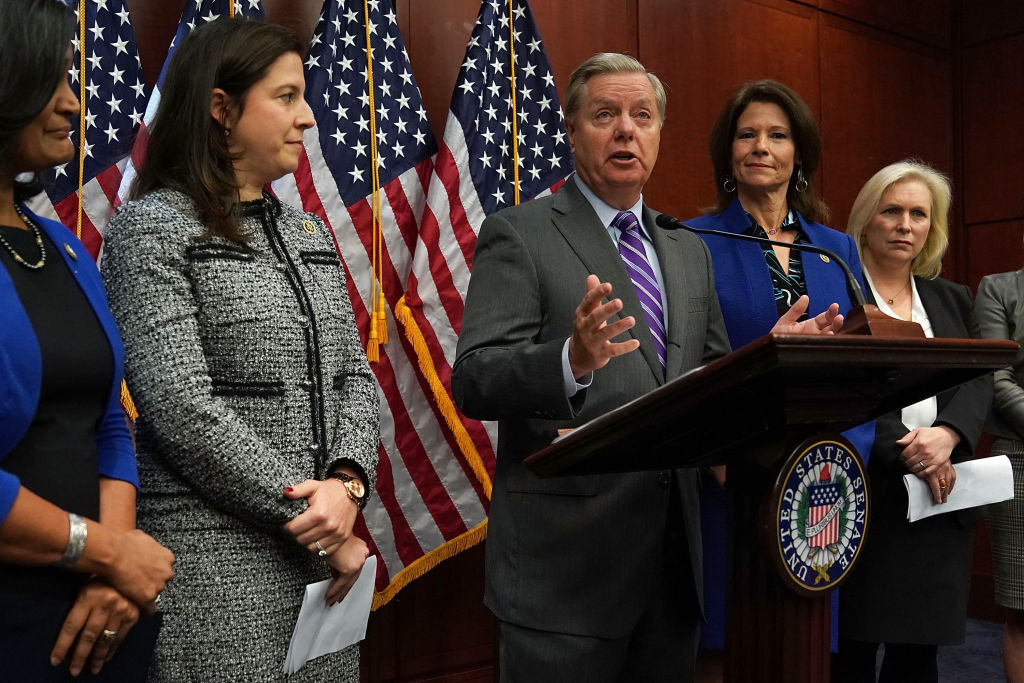
Last spring, congressional Republicans passed and President Trump signed a law repealing former President Barack Obama's Fair Pay and Safe Workplaces rule, finalized in August 2016, as part of their liberal use of the Congressional Review Act to nullify 14 Obama-era regulations. The rule required federal contractors to disclose sexual harassment and other labor violations before receiving significant federal contracts, Politico reports, and also forbade large contractors from forcing employees to take labor complaints to arbitration, typically secret proceedings where the worker is more likely to lose than in court.
Mandatory arbitration plays a big part in sexual misconduct cases, and former Fox News anchor Gretchen Carlson has made abolishing such clauses — ubiquitous in her former employer's sexual harassment settlements — a central plank in her campaign against sexual harassment. A few months after Trump signed the Fair Pay and Safe Workplaces repeal, The New York Times published its exposé on Hollywood producer Harvey Weinstein, starting the #MeToo moment that has forced out prominent men in media, the arts, and Congress.
"I can tell you without a doubt," Ben Olinsky, an Obama labor policy aide who helped write the jettisoned rule, tells Politico. "This provision would have brought significant new accountability to federal contractors with sexual harassment and assault." Now, Congress is working on bipartisan legislation, Senate bill 2203, that would ban forced arbitration not just among federal contractors but all businesses. Its main sponsor, Sen. Lindsey Graham (R-S.C.), voted to repeal the Obama rule.
The Week
Escape your echo chamber. Get the facts behind the news, plus analysis from multiple perspectives.

Sign up for The Week's Free Newsletters
From our morning news briefing to a weekly Good News Newsletter, get the best of The Week delivered directly to your inbox.
From our morning news briefing to a weekly Good News Newsletter, get the best of The Week delivered directly to your inbox.
Republicans say they did not repeal the Obama rule because of sexual harassment, which they point out is already illegal. But labor experts say contractors are especially vulnerable to sexual harassment, and the problem has grown as the number of federal contractors has mushroomed, costing more than $400 billion a year now from $182 billion in 1993. You can read more about the proposed and scrapped regulations at Politico.
A free daily email with the biggest news stories of the day – and the best features from TheWeek.com
Peter has worked as a news and culture writer and editor at The Week since the site's launch in 2008. He covers politics, world affairs, religion and cultural currents. His journalism career began as a copy editor at a financial newswire and has included editorial positions at The New York Times Magazine, Facts on File, and Oregon State University.
-
 Wilde Cambridge: home-away-from-home in a prime city spot
Wilde Cambridge: home-away-from-home in a prime city spotThe Week Recommends This laid-back aparthotel is the perfect base for a weekend of exploring
-
 The best alcohol-free alternatives for Dry January
The best alcohol-free alternatives for Dry JanuaryThe Week Recommends Whether emerging from a boozy Christmas, or seeking a change in 2026, here are some of the best non-alcoholic beers, wines and spirits to enjoy
-
 A lemon-shaped exoplanet is squeezing what we know about planet formation
A lemon-shaped exoplanet is squeezing what we know about planet formationUnder the radar It may be made from a former star
-
 Bari Weiss’ ‘60 Minutes’ scandal is about more than one report
Bari Weiss’ ‘60 Minutes’ scandal is about more than one reportIN THE SPOTLIGHT By blocking an approved segment on a controversial prison holding US deportees in El Salvador, the editor-in-chief of CBS News has become the main story
-
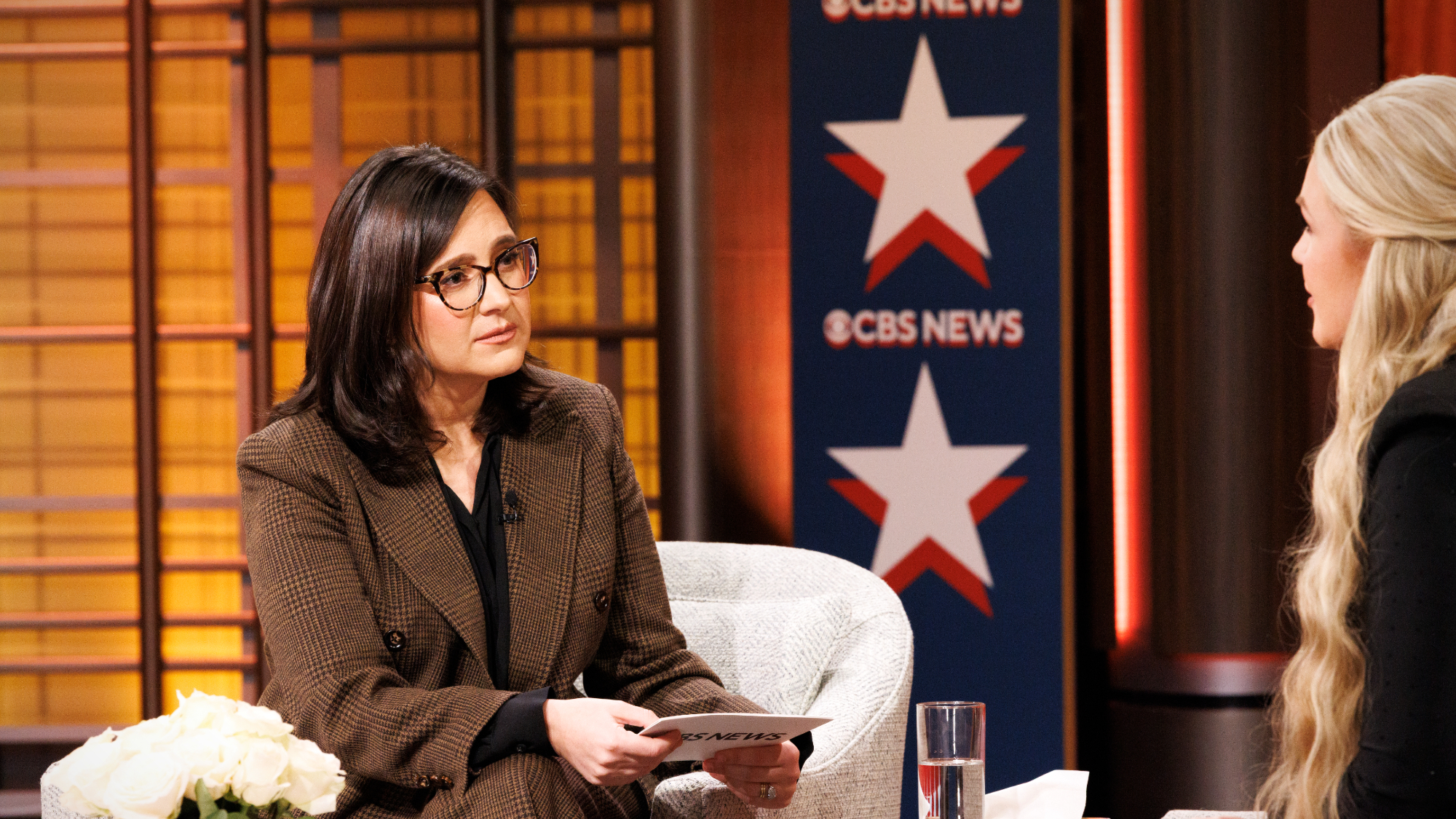 CBS pulls ‘60 Minutes’ report on Trump deportees
CBS pulls ‘60 Minutes’ report on Trump deporteesSpeed Read An investigation into the deportations of Venezuelan migrants to El Salvador’s notorious prison was scrapped
-
 Trump administration posts sliver of Epstein files
Trump administration posts sliver of Epstein filesSpeed Read Many of the Justice Department documents were heavily redacted, though new photos of both Donald Trump and Bill Clinton emerged
-
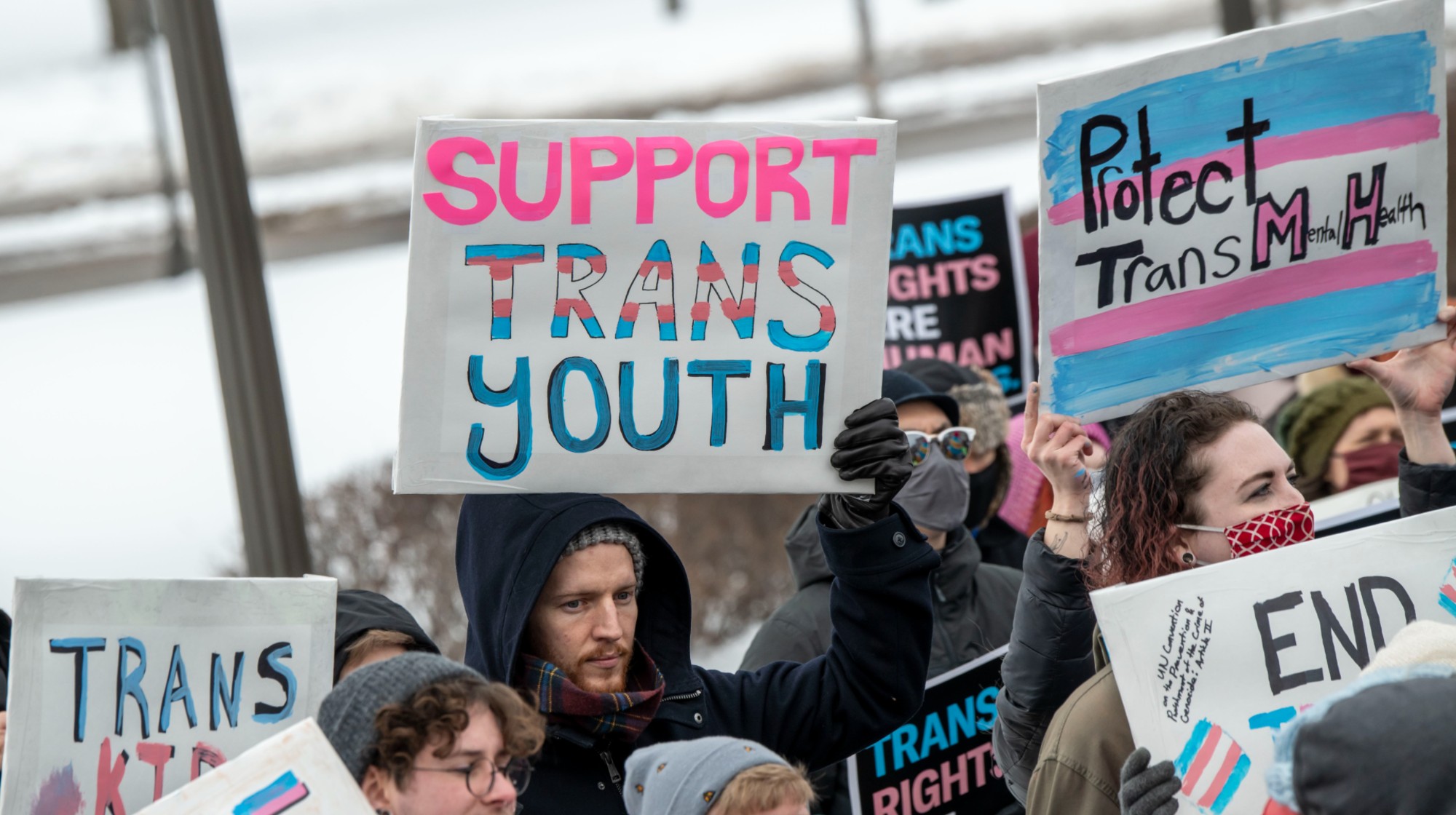 Trump HHS moves to end care for trans youth
Trump HHS moves to end care for trans youthSpeed Read The administration is making sweeping proposals that would eliminate gender-affirming care for Americans under age 18
-
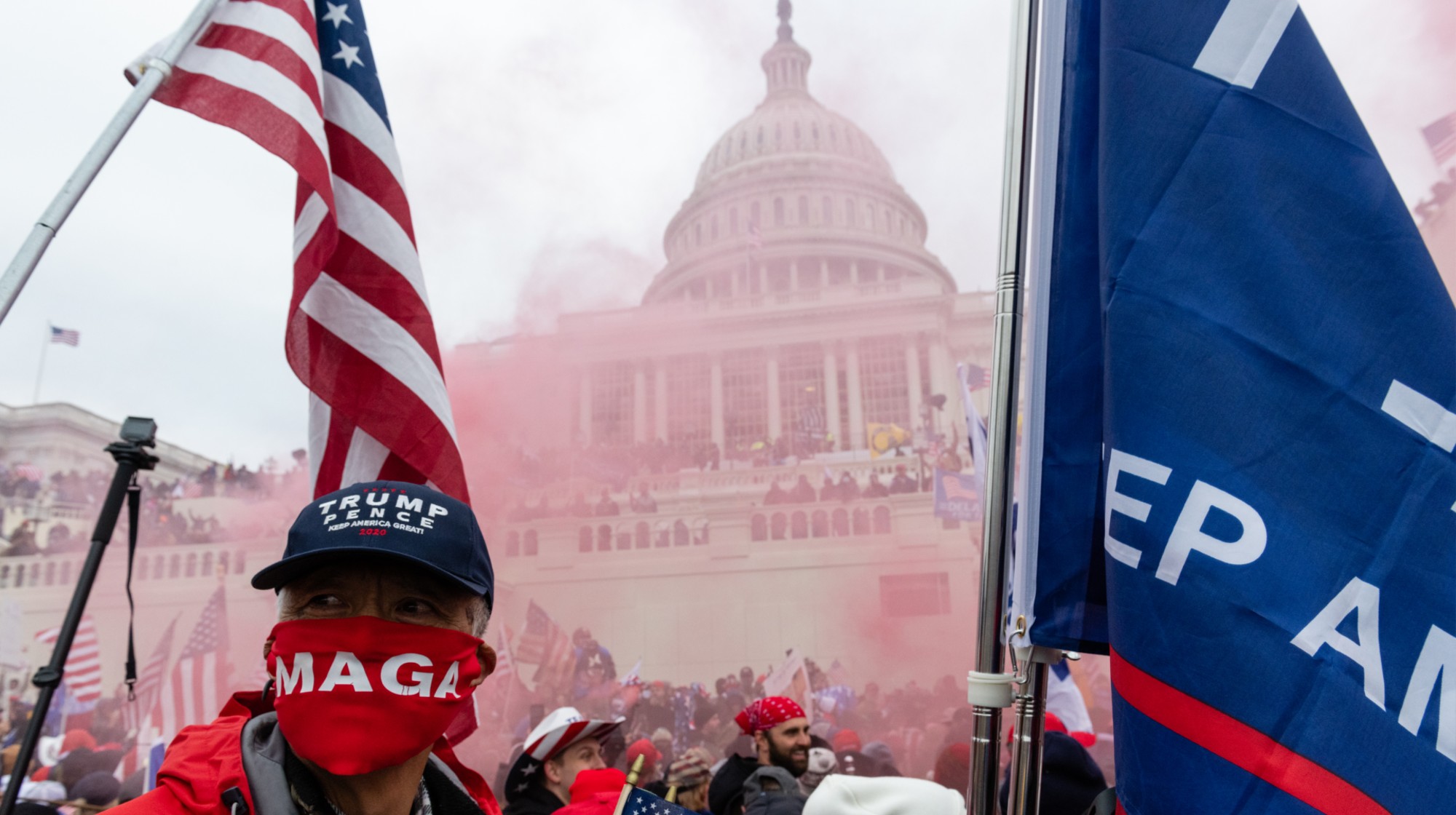 Jack Smith tells House of ‘proof’ of Trump’s crimes
Jack Smith tells House of ‘proof’ of Trump’s crimesSpeed Read President Donald Trump ‘engaged in a criminal scheme to overturn the results of the 2020 presidential election,’ hoarded classified documents and ‘repeatedly tried to obstruct justice’
-
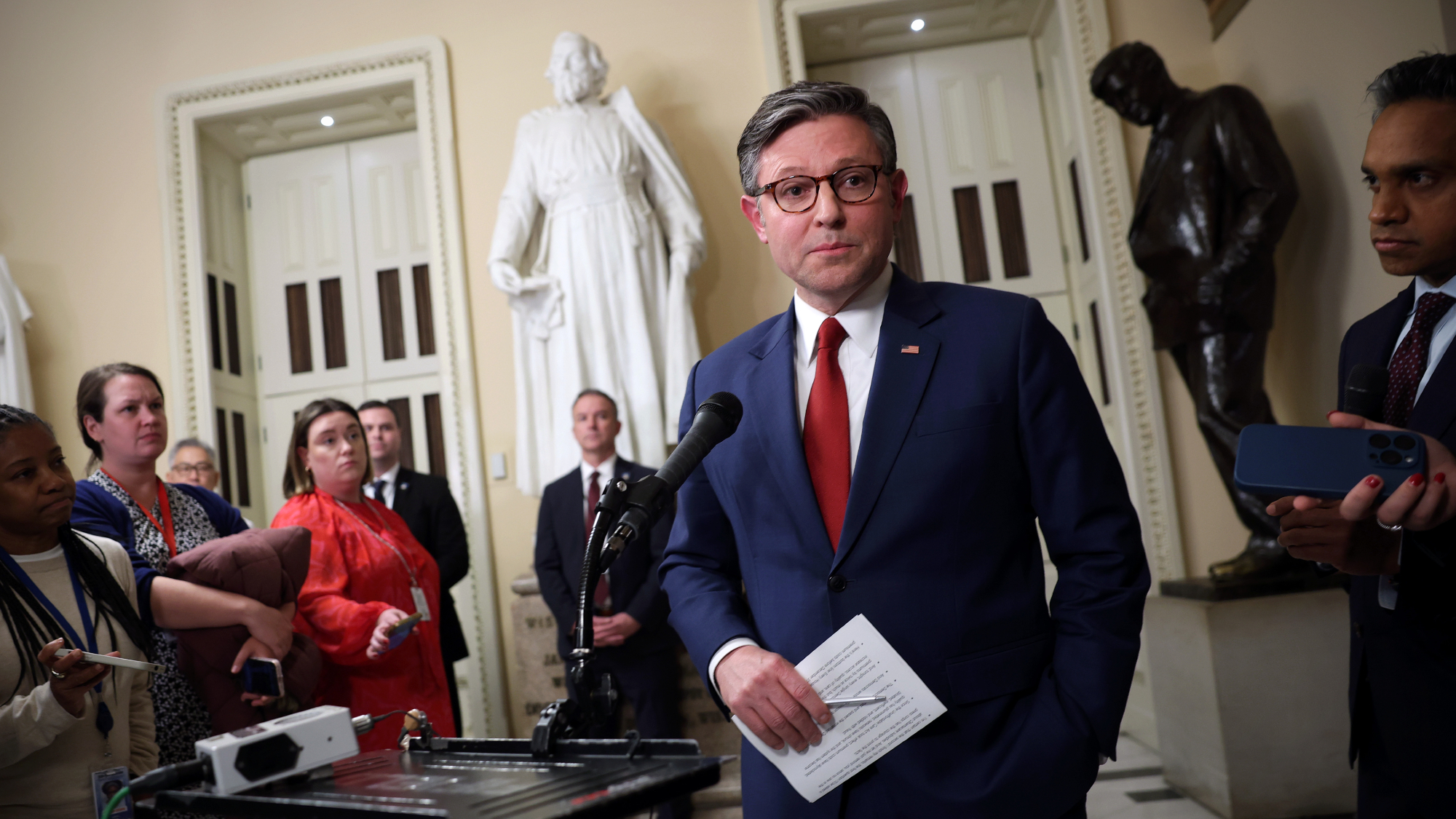 House GOP revolt forces vote on ACA subsidies
House GOP revolt forces vote on ACA subsidiesSpeed Read The new health care bill would lower some costs but not extend expiring Affordable Care Act subsidies
-
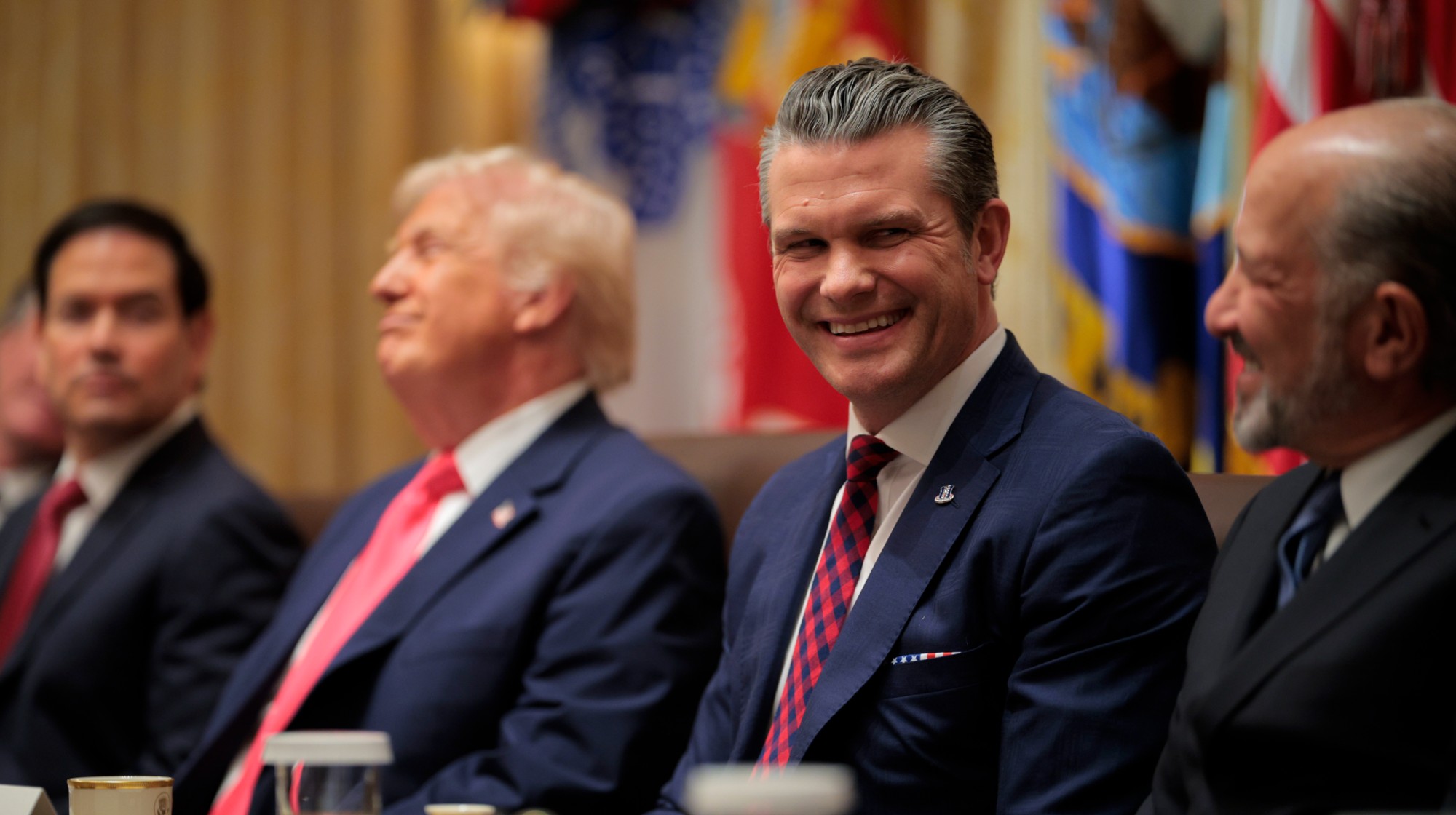 Hegseth rejects release of full boat strike footage
Hegseth rejects release of full boat strike footageSpeed Read There are calls to release video of the military killing two survivors of a Sept. 2 missile strike on an alleged drug trafficking boat
-
 Trump vows naval blockade of most Venezuelan oil
Trump vows naval blockade of most Venezuelan oilSpeed Read The announcement further escalates pressure on President Nicolás Maduro
